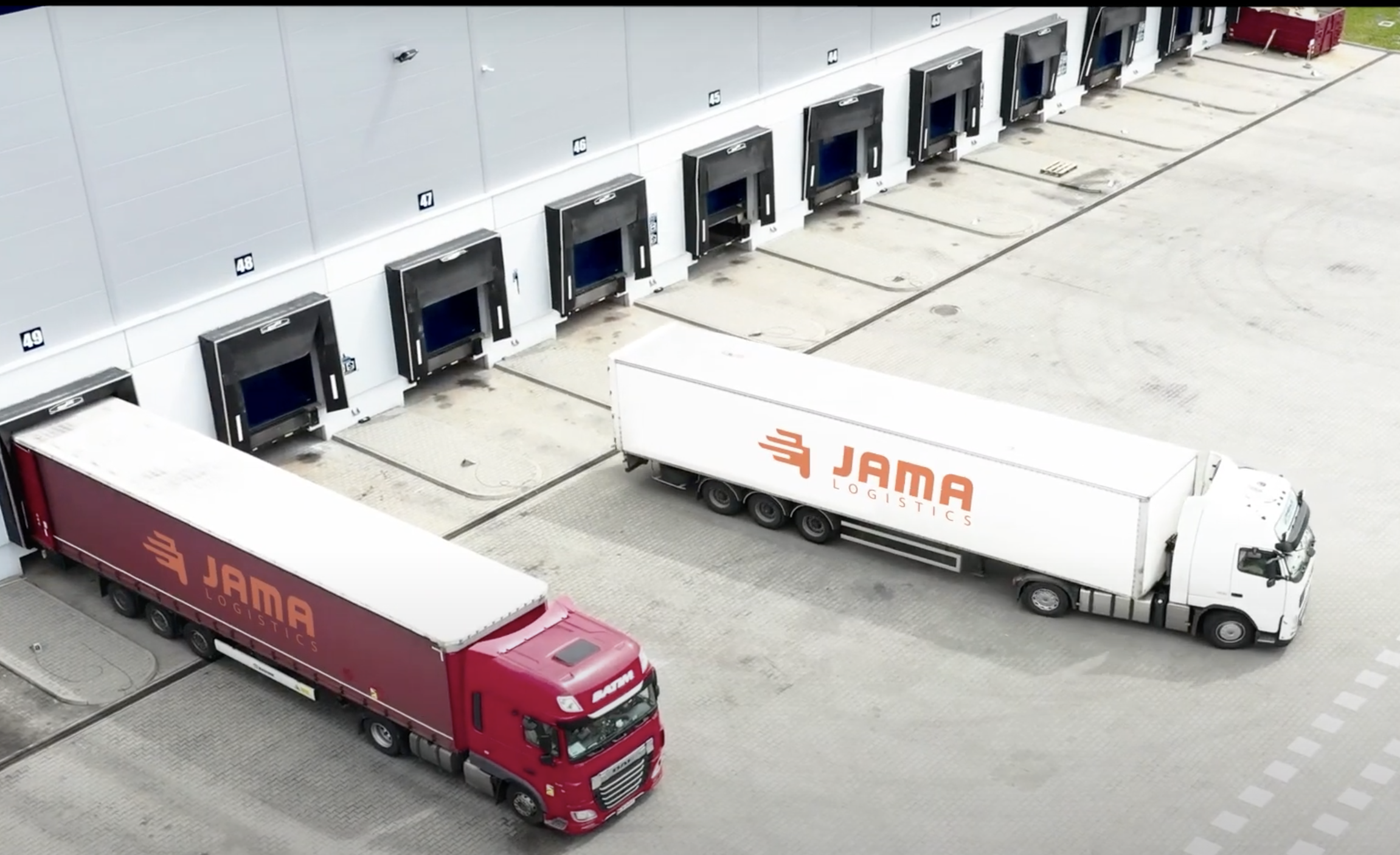Do you ever wonder what a logistics company is and what they do? If so, you’re in the right place! In this blog post, we’ll provide an overview of what a logistics company is and discuss the various services they offer. We’ll also take a look at some common questions people have about logistics companies and their services. So let’s get started!
What is a Logistics Company?
In simpler terms, a logistics company helps businesses get their products from the place they are made to the place they need to be sold, in an efficient and cost-effective manner. These companies handle the behind-the-scenes work of transportation and storage, so businesses can focus on other aspects of their operations.
What Do Logistics Companies Do?
Logistics companies offer services that help businesses streamline and optimize their supply chain, from procurement to delivery. They handle tasks such as inventory management, transportation, and distribution, providing cost-effective and efficient solutions that ensure goods reach their destination safely and on time.
What are Logistics Services?
Logistics services are a vital aspect of supply chain management, helping businesses move goods and materials efficiently and cost-effectively. These services include warehousing, order fulfilment, transportation management, freight brokerage, inventory management, and more. Logistics companies offer customised packages to meet the needs of their clients.
- Warehousing and Storage: Warehousing services provide secure storage for goods and materials, ensuring they are easily accessible when needed.
- Order Fulfilment and Delivery: Order fulfilment services handle the entire process of processing orders, from picking and packing to delivery.
- Transportation Management: Transportation management helps businesses plan and manage their transportation needs by sourcing carriers, booking shipments, and managing delivery schedules.
- Freight Brokerage: Freight brokerage services connect businesses with carriers to find the best rate for their shipments.
- Inventory Management: Inventory management helps businesses track their inventory in real-time, so they always know what they have in stock.
With the right logistics services partner, businesses can ensure their operations run smoothly and efficiently
Types of Logistics Companies
Freight Brokers
Freight brokers are intermediaries who match shippers with carriers to transport goods. They handle the logistics of shipping, including negotiating rates and arranging transportation.
Third-Party Logistics Companies (3PLs)
Third-party logistics companies provide a range of services to manage the movement of goods within the supply chain. These services include transportation management, warehousing, inventory management, and more. They can be a cost-effective solution for businesses looking to streamline their logistics processes.
Other Types of Logistics Companies
In addition to freight brokers and 3PLs, there are other types of logistics companies available. These include:
- 1PL (first-party logistics providers) who use their own resources to manage the movement of goods and services within the supply chain.
- 2PL (second-party logistics providers) who are third-party companies that specialize in transportation and storage of products.
- 4PL (fourth-party logistics providers) who are highly specialized companies that provide services such as consulting and project management.
- 5PL companies who focus on providing end-to-end solutions that combine the resources of multiple 3PLs to provide a comprehensive service.
Advantages of Partnering with a Logistics Company
Increased Efficiency
Working with a logistics company can increase the efficiency of a business’s supply chain operations. They provide planning, management, and transportation services for goods from start to finish, ensuring that everything runs smoothly.
Cost Savings
Partnering with a logistics company can lead to cost savings, especially for businesses that operate globally. Logistics companies have the expertise and resources to manage the movement of goods effectively, which can result in lower distribution costs.
Improved Customer Service
By using a logistics company, businesses can offer their customers a wider range of delivery options, faster delivery times, and better tracking information. This can lead to increased customer satisfaction and help to build a strong relationship with customers. In addition, a logistics partner can provide inventory management, freight forwarding, and warehousing services, further improving the overall customer experience.
Understanding the Difference between 3PL and Freight Brokerage
What is Freight Brokerage?
Freight brokerage involves arranging transportation for goods from one location to another. Brokers specialize in finding carriers and negotiating rates on behalf of their clients.
Third-Party Logistics (3PL) Explained
3PL companies offer complete logistics solutions for managing the movement of goods in the supply chain. This includes picking up goods from suppliers, storage, transportation, and delivery to the final destination. 3PLs offer a more comprehensive approach to supply chain management.
Key Differences and Benefits
While both freight brokers and 3PLs play vital roles in successful supply chain management, they have distinct differences in the services they offer and benefits they provide. Freight brokers focus on transportation arrangements while 3PLs manage the entire logistics process. 3PLs offer more comprehensive solutions that can save businesses time, money, and resources. On the other hand, freight brokers can get better rates for their clients by working with multiple carriers. The choice between a freight broker or a 3PL will depend on a business’s specific needs and goals.
Logistics in Supply Chain Management
The Role of Logistics in Supply Chain Efficiency
Logistics plays a crucial role in the supply chain management process, as it helps ensure that goods, materials, and services are transported efficiently and cost-effectively. By working with a logistics company, businesses can optimize their supply chain operations and achieve cost savings, increased efficiency, and improved customer service.
Services Offered by Logistics Companies
Logistics companies offer a wide range of services, including warehousing, inventory management, transportation management, and freight brokerage, to help businesses streamline their supply chain operations. They also leverage technological innovations to improve order fulfillment accuracy and speed.”
The Impact of Technological Innovations on Logistics
Streamlining Supply Chain Operations
The impact of technology in logistics has led to increased efficiency in supply chain management. The latest innovations, such as automation and robotics, are helping to streamline operations. Big data analytics provides valuable insights for making data-driven decisions. Autonomous vehicles are transforming last-mile delivery, making it faster and more reliable. These technological advancements are crucial for businesses to remain competitive in a global economy.
Advancements in Warehouse Management Systems
Warehouse management systems (WMS) have been improved with the integration of AI, big data analytics, and RPA. These technologies automate inventory tasks, streamline warehouse processes, and provide real-time data on inventory performance. By partnering with a logistics company, businesses can take advantage of these advancements to optimize their supply chain and achieve cost savings.
The Growth of E-commerce and Its Impact
The rise of e-commerce has brought new challenges and opportunities to the logistics industry. Logistics companies have adapted by offering customized solutions for e-commerce supply chains, such as fast delivery, improved tracking, better customer service, and efficient inventory management. The use of big data analytics and a focus on sustainability initiatives are key for logistics companies to remain competitive in the growing online marketplace..
Environmental Sustainability in Logistics
Businesses are increasingly focused on sustainability, including the logistics industry. Environmental sustainability in logistics refers to the practices and processes aimed at reducing the carbon footprint and pollution of logistics operations, conserving energy, and protecting the environment.
Companies can support sustainability by implementing green strategies, such as using eco-friendly transportation and efficient packaging, and utilizing technology like warehouse management systems. The growth of e-commerce has also impacted the industry, making sustainable practices essential for businesses to remain competitive.
Green Logistics Strategies
Green logistics strategies focus on reducing the carbon footprint, conserving energy, and protecting the environment through eco-friendly practices and technology use. This includes reducing waste and emissions, using international logistics services that prioritize sustainability, and improving operational efficiency through technology. These strategies can improve business operations while contributing to a healthier planet.
What Logistics Provider Should I Choose?
Jama Logistics is the go to provider. Partnering Jama Logistics can bring a wealth of benefits to your business, from increased efficiency and cost savings, to improved customer service and support for your supply chain management, a logistics company offers a wide range of services that can help streamline your operations and boost your bottom line.
With the latest technological advancements and a focus on sustainability, choosing Jama Logistics as your logistics partner puts you at the forefront of the ever-evolving marketplace. With their expertise in freight brokerage, third-party logistics, and international shipping, you can rest assured that your business is in good hand.




